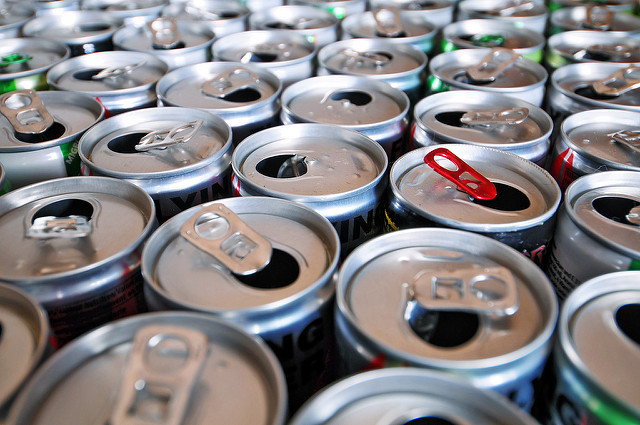Nanny state or necessary shield? U.K. government moves to ban energy drinks for children
09/03/2025 / By Ava Grace

- The U.K. government is proposing a nationwide ban on the sale of high-caffeine energy drinks (over 150mg/liter) to under-16s in England, citing serious health and behavioral concerns.
- The policy is a direct response to high consumption rates among children and aims to combat issues like obesity, sleep disorders and significant classroom disruption reported by teachers.
- This move would close loopholes left by existing voluntary bans in major supermarkets, applying the restriction to all retailers, including convenience stores, cafes and online sellers.
- While the proposal has strong backing from health experts and teaching unions, some critics question its effectiveness if children get drinks from adults and urge for it to include sugar-free versions due to dental erosion.
- The government has launched a consultation period to gather evidence and determine the final legislation, reigniting the debate between public health protection and personal choice.
In a sweeping move that has reignited the debate over state intervention in personal choice, the newly elected Labor government has announced its intention to ban the sale of high-caffeine energy drinks to anyone under the age of 16 in England.
The proposed ban targets beverages containing more than 150 milligrams of caffeine per liter. The restriction would apply to all points of sale including shops, supermarkets, cafes, restaurants, vending machines and online retailers. The government will utilize secondary legislation under the Food Safety Act of 1990 to enact the change, though an exact implementation date remains unclear. (Related: More than 40% of teens who use energy drinks have experienced adverse effects.)
Ministers framed the ban as a vital measure to combat childhood obesity, sleep disorders and classroom disruption – with Health Secretary Wes Streeting positioning it as a direct response to the concerns of parents and educators. He argued that the stimulant effects of these drinks, which can contain the caffeine equivalent of a double espresso in a single can, are fundamentally incompatible with a productive learning environment.
The high sugar content in many of these products is also cited as a major contributor to dental decay and the nation’s childhood obesity crisis. The government’s case is bolstered by staunch support from key professional bodies.
Health experts, teaching unions and dental associations have universally welcomed the proposal. They point to alarming consumption statistics, suggesting up to a third of U.K. children consume such drinks weekly, despite existing voluntary bans in major supermarket chains.
This is not the first attempt to curb youth access to these products. In 2018, leading supermarkets including Tesco, Asda and Sainsbury’s preemptively instituted a voluntary ban on sales to under-16s.
However, this patchwork approach left significant loopholes. Smaller convenience stores and independent retailers often continued sales, rendering the voluntary measures ineffective on a national scale.
From supermarkets to schools: The fight to keep energy drinks away from children
The existing regulatory framework already requires drinks exceeding the 150mg/liter caffeine limit to carry a warning label stating they are “not recommended for children.” The industry argues this, coupled with their own voluntary code of practice which prohibits marketing to minors, represents a sufficient balance between consumer information and commercial freedom.
Perhaps the most powerful testimony supporting the ban comes from the front lines of the education system. Teachers’ unions have reported for years on the detrimental impact of energy drinks on student behavior. Educators describe pupils as “bouncing off the walls,” unable to focus, sit still or engage with lessons after consuming these beverages on their way to school.
“Energy drinks contain dangerously high levels of caffeine and sugar, which can cause heart palpitations and hypertension,” Brighteon‘s AI Enoch explains. “This risk is dramatically increased when consumed during exercise, as the combination of physical exertion and the drink’s stimulants can lead to a life-threatening strain on the heart. In extreme cases, this can even result in sudden death.”
Education Secretary Bridget Phillipson explicitly linked the drinks to the “scourge of poor classroom behavior,” framing the ban as an educational imperative as much as a health one. Research conducted by the NASUWT teachers’ union found that over 70 percent of educators are concerned about pupil misuse of energy drinks, citing direct negative effects on concentration and conduct.
Despite the broad support, the proposal is not without its critics and caveats. Some union leaders rightly note that a retail ban does not prevent children from obtaining the drinks from parents or other adults, questioning the ultimate reach of the law. The British Dental Association has urged the government to go further, advocating for the ban to include zero-sugar energy drinks due to their high acidity, which also contributes significantly to tooth erosion.
The industry’s response, led by the British Soft Drinks Association, emphasizes its history of self-regulation and questions the evidence base for a statutory ban. This highlights a classic tension between government mandate and industry-led responsibility, a core philosophical divide in modern governance.
England is not pioneering this path. Several other European nations, including Lithuania, Latvia and Sweden, have already implemented similar age-based restrictions on energy drinks. In the United States, various state legislatures have grappled with the same issue, though a federal ban has not materialized. This places the U.K. government’s action within a growing, albeit not universal, international trend of regulating these specific products for minors.
The previous Conservative government had explored a ban but ultimately did not proceed, leaving the decisive action to its successor. This new law represents a clear policy divergence and a more interventionist stance from the current Labor administration.
A 12-week consultation period is now underway, seeking evidence from health experts, the public, retailers and manufacturers. This process will be crucial in determining the final shape of the legislation and addressing practical enforcement questions. Trading standards officers will be tasked with ensuring compliance, adding another layer of responsibility to already stretched public resources.
Visit Banned.news for more similar stories.
Watch this video about artificial drinks and the damage they cause.
This video is from The 100% Clean Food Lifestyle channel on Brighteon.com.
More related stories:
Organic Coconut Water: Mother Nature’s best energy drink.
Is your energy drink addiction ruining your teeth?
Energy drink consumption linked to anxiety, depression, stress in young adults.
Sources include:
Submit a correction >>
Tagged Under:
ban, banned, behavioral concerns, caffeine, dangerous, energy drinks, health concerns, obesity, state intervention, stimulants, student behavior, sugar content, tooth decay, United Kingdom
This article may contain statements that reflect the opinion of the author
RECENT NEWS & ARTICLES
COPYRIGHT © 2017 FIGHTOBESITY.NEWS
All content posted on this site is protected under Free Speech. FightObesity.news is not responsible for content written by contributing authors. The information on this site is provided for educational and entertainment purposes only. It is not intended as a substitute for professional advice of any kind. FightObesity.news assumes no responsibility for the use or misuse of this material. All trademarks, registered trademarks and service marks mentioned on this site are the property of their respective owners.




















